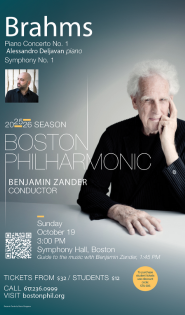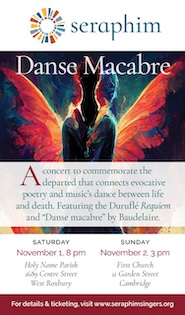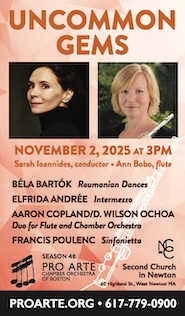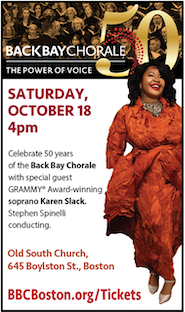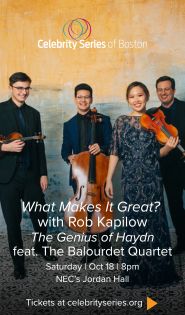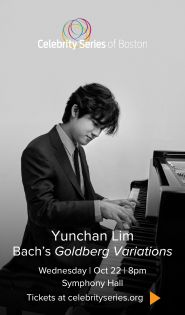Boston Pops serves up an evening of familiar and rare Gershwin
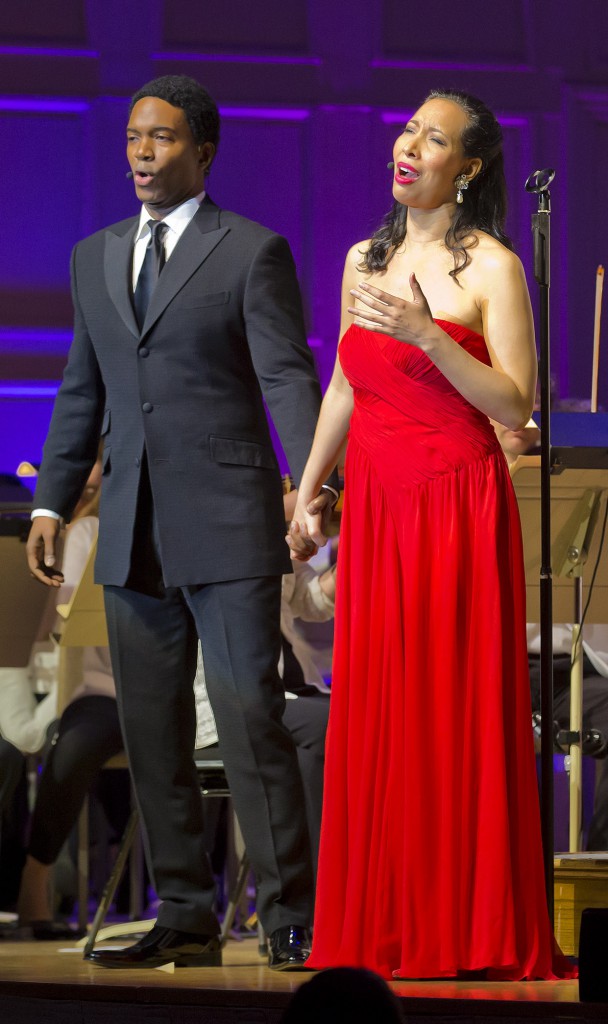
Nicole Cabell and Nmon Ford performed music from Gershwin’s “Porgy and Bess” Wednesday with the Boston Pops. Photo: Winslow Townson
The Boston Pops’ “Gershwin Celebration” emphasized the composer’s songwriting Wednesday night at Symphony Hall with a selection of beloved tunes and lesser-known numbers from his many musicals.
Despite some unexpected programming, the Pops and special guests, singers Nicole Cabell, Nmon Ford, and pianist Charlie Albright, took few risks with their performances and thus missed opportunities to inspire or move the audience. In his first appearance as conductor and emcee for the Boston Pops, David Charles Abell was appropriately animated and threw in an expected measure of comedy, without hamming it up too much. Though neither singer needed it, both vocalists were amplified, as is traditional at Pops performances.
The evening opened with a curtain-raising medley that made use of all the typically bright Broadway orchestrations, including washboard percussion, lilting glissandos, and prominent brass parts. Abell opted to take the first song of the evening, “Embraceable You,” at its original energetic dance-tune tempo. Nicole Cabell employed her full operatic soprano in all its velvety tones to express longing even at this quick pace while the orchestra deftly swooped along behind her like a practiced waltzer. “I’ve Got to Be There,” a lesser-known prohibition-era ode to good times, gave Nmon Ford ample opportunity to employ his compelling stage presence and his smooth “baritenor.” Here the orchestra employed bolder dynamics and expressive accents to great effect.
In the duet “Let’s Call the Whole Thing Off,” Cabell used her ability to switch between an operatic vibrato and a straighter tone to add emphasis and humor to the wordplay at the heart of this song. While Ford couldn’t summon up the same operatic intensity, his effortless sense of timing created an entertaining chemistry between the two singers.
This first set closed with an improvisation on “Embraceable You” and “Let’s Call the Whole Thing Off” by young pianist Charlie Albright. While his technique is unquestionable, Albright’s improvisation was a safe pastiche of late Romantic piano style rather than an imaginative exploration of these enduring songs.
“Summertime” started off a set of selections from Porgy and Bess. Here, the orchestra left lots of space for Cabell to unleash the full beauty of her voice, and her control allowed for detailed shaping of each phrase. Her emphasis on clear, sustained notes left little room for precise diction or strong emotion, but it did illuminate the elegance of Gershwin’s melody. Ford provided the highlight of this set in his suave rendition of “It Ain’t Necessarily So.” His sense of theatricality readily brought to mind the deceptive persuasiveness of Sportin’ Life, even for audience members unfamiliar with the opera. Ford’s unbridled expression in the bluesier phrases of this song hinted at a reservoir of emotion that remained largely untapped in this concert.
Abell drew from Gershwin’s Depression-era political musical Of Thee I Sing for the second half of the concert. While the overture did not have much in the way of familiar tunes, the Pops provided a stirring performance of its stormy opening, the lyrical main themes, and a somewhat sappy, but beautifully played violin solo. The duet “Of Thee I Sing” had a heroic flavor especially evident in the strong finish supplied by Cabell and Ford.
While the song selections in this half of the concert provided no new insights into Gershwin’s work or opportunities for the singers’ talents, The Gershwin Nobody Knew gave the audience a chance to appreciate the work of his frequent orchestrator, Robert Russell Bennett. Bennett’s medley of seven Gershwin tunes, including two that Gershwin never published, was more cinematic than theatrical. The Pops took this opportunity to expand their use of dynamics and articulations, enlivening Bennett’s varied and inventive orchestral colors.
Charlie Albright joined the orchestra for the evening’s finale, Rhapsody in Blue, which, unfortunately, received a rather boring performance. Abell took a rather quick tempo, leaving little room for either the orchestra or the soloist to explore the expressive possibilities of the piece. The famous clarinet opening with its dramatic glissando was safe and restrained. Albright’s handling of the exposition as well as his cadenza was likewise competent but unexciting.
Nicole Cabell and Nmon Ford joined Albright and Pops onstage for an encore of “Love Is Sweeping the Country,” an energetic show-stopper from Of Thee I Sing.
The program will be repeated 8 p.m. Thursday at Symphony Hall. bso.org.
Posted in Performances
